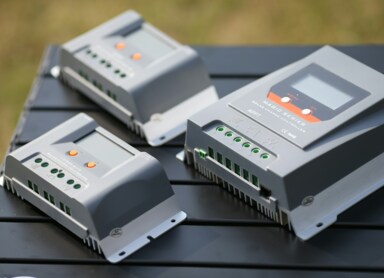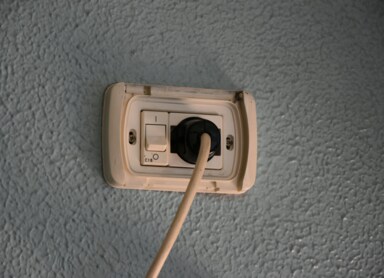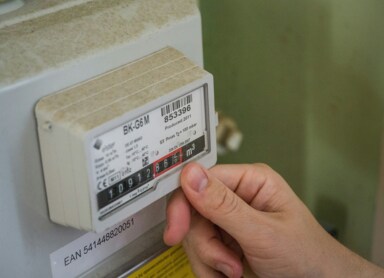How to Sort Waste? 5 Eco-Friendly Tips for Companies
Segregation of garbage is important for the comfort of life of all of us. This should be remembered not only by residents of apartment blocks or single-family houses, but also by companies. Failure to do so not only risks a higher fee, but also harms the environment. How to segregate garbage in a company to do it properly?
Fundamentals of Proper Waste Segregation in a Company
Waste segregation is a key element of the circular economy. By separating different types of waste, we reduce the amount of trash that ends up in landfills, which means lower maintenance costs for such facilities and less burden on the environment. Better segregation also allows for more effective recycling. More materials can be recovered, resulting in less exploitation of natural resources.
At first glance, the general rules of segregation seem simple and involve sorting waste into several containers of different colors. Waste is collected separately as follows:
- Paper (blue bins);
- Glass (green bins);
- Plastics and metals (yellow bins);
- Biodegradable waste (brown bins);
- Mixed waste (black bins).
Additionally, electronic waste and hazardous materials, such as biologically contaminated items, are collected separately. Such a set of bins should be placed in every room if possible, and if not, in several central locations, so employees have easy access to them. This also allows the cleaning service to easily transfer the contents to large containers, which will be taken away by a waste collection company.
In practice, however, segregation often raises many doubts among employees. After all, what should we do with a milk carton, which is partially paper and partially plastic? Let’s take a closer look at what NOT to throw into specific bins:
- In the plastics bin, do not dispose of items like bottles with contents, medicine packaging, used medical items, spent batteries and accumulators, or household appliances;
- In the paper bin, do not dispose of dirty paper towels, used tissues, milk cartons and other beverage cartons, glossy or laminated paper, or greasy disposable packaging;
- In the glass bin, do not dispose of light bulbs, fluorescent lamps, syringes, thermometers, or monitors;
- In the biodegradable waste bin, do not dispose of items like chipboard, MDF fiberboard, or impregnated wood.
So where should our example milk carton go? Into the yellow bin for plastics. There may be many more such doubts, so it’s worth educating employees and putting up information boards with waste segregation guidelines in the company.
How to Segregate Waste? Best Practices for Businesses
To ensure efficient waste segregation in your company, implement simple and clear rules that will work regardless of the scale of your operations.
-
Determine What Exactly Should Be Segregated
The first step should be identifying and properly classifying the waste. Right from the start, decide what waste goes into each of the different bins. You can also choose to segregate more thoroughly than required by current regulations.
A good example might be dismantling electronic waste to extract metal parts. Some companies specialize in purchasing copper cables or printed circuit boards. They can buy specific materials from you, which means your company earns money and you ensure the waste is handled responsibly.
-
Choose a Reliable Waste Collector
Waste collection services vary between providers. Make sure to compare the terms of cooperation with several companies in your region. It may turn out that for a slightly higher fee, you’ll receive hassle-free and timely service from a provider with all the necessary permits and registrations in GIOŚ or BDO.
If your company produces a significant amount of a specific type of waste, such as paper, it’s worth collaborating with a company that has its own infrastructure for processing that type of waste or works with other entities that do. In such cases, you might benefit from very attractive terms of cooperation. Always carefully review the contract before signing it.
-
Reduce Waste Generation in the Company
Whenever possible, consider implementing recycling or upcycling practices in your company. Items that seem unnecessary can be turned into useful objects for daily work, such as furniture or chairs for employees. Smart waste management also helps meet ESG regulations, enhancing your company’s reputation as a responsible market participant that cares not only about financial results but also about the environment and community.
-
Educate Employees About Waste Segregation
Even the best-designed infrastructure won’t help if employees ignore the waste segregation rules. Be sure to run internal awareness campaigns for your staff. Consider inviting specialists to give a presentation on the topic, creating posters and leaflets, and placing bins for different types of waste in a logical order throughout the company.
-
Don’t Hesitate to Seek Help from Experts
Waste management in a large manufacturing or service company can be challenging. That’s why it’s a good idea to involve experts who can conduct an audit of your internal processes and procedures and help you plan a waste management system in the spirit of less waste. Practical advice or analysis of specific case studies is often much more helpful than theoretical guidelines.
Remember to apply all these principles using the Deming Cycle approach. If anything significant changes in your company’s waste generation, analyze the entire process again and strive to improve it.
Waste Segregation in a Company – Environmental and Business Benefits
By segregating waste, you not only comply with legal obligations but also gain a range of tangible benefits. First and foremost, you streamline internal and external logistics, ensuring efficient waste handling. You can avoid dealing with accumulating waste that no one knows how to handle, and reduce the costs of running your business. Fewer waste collections also lead to reduced carbon emissions, minimizing both your company’s environmental impact and unplanned expenses.
Achieving higher levels of recycling allows your company to grow faster and build a consistent, credible brand as an environmentally conscious business. In an era of ESG and increasing demands to reduce harmful emissions, such as with EURO 6 and EURO 7 standards, this is particularly important.
Segregation Guide – How to Avoid Common Mistakes?
Proper waste segregation requires diligence and practice, so mistakes will occur for some time, and this must be accepted, even if occasional higher waste collection fees result. However, as employees become more aware and the collection and upscaling processes run more smoothly, these errors will diminish. Therefore, it’s important to act consistently and remain patient. The positive results will come over time.







